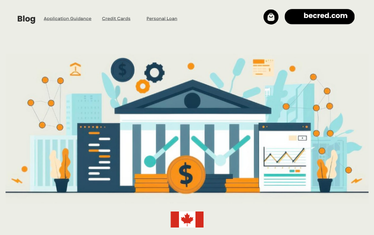Tips to Improve Your Credit Score Without Spending Money
Having a good credit score is crucial for financial stability. This blog post discusses techniques to boost your credit score without any additional costs.
Importance of a Good Credit Score
A good credit score is essential for maintaining financial health and stability. It serves as a representation of an individual’s creditworthiness and financial responsibility. In today’s world, where access to credit is prevalent, having a good credit score can significantly impact one’s financial well-being. Let’s delve into the reasons why having a good credit score is crucial:
Avoid Higher Interest Rates on Loans
One of the primary benefits of having a good credit score is the ability to access credit at lower interest rates. Lenders use credit scores as a factor in determining the interest rates offered to borrowers. A higher credit score signals to lenders that you are a responsible borrower who is likely to repay debts on time. As a result, individuals with good credit scores are more likely to qualify for loans with lower interest rates, saving them money in the long run.
Increase Chances of Loan Approvals
Having a good credit score can significantly increase your chances of loan approval. Lenders are more willing to extend credit to individuals with good credit scores as they are perceived as lower risk borrowers. A good credit score demonstrates your ability to manage debt and make timely payments, making you a more attractive candidate for loans. Whether you are applying for a mortgage, car loan, or personal loan, a good credit score can make the difference between approval and rejection.
Negotiate Better Terms with Lenders
Individuals with good credit scores have the upper hand when negotiating loan terms with lenders. Lenders are more likely to offer favourable terms, such as lower interest rates, higher loan amounts, and longer repayment periods, to borrowers with good credit scores. With a good credit score, you have the leverage to negotiate better terms that can save you money and make loan repayment more manageable.
In conclusion, a good credit score is vital for navigating the world of credit and finance. By maintaining a good credit score, individuals can access credit at lower interest rates, increase their chances of loan approval, and negotiate better terms with lenders. Building and preserving a good credit score is a prudent financial decision that can have long-lasting benefits for your financial well-being.
Identifying Negative Factors
When it comes to understanding your financial health, one of the key aspects to consider is your credit report. Your credit report showcases important information about your borrowing history, payment behaviour, and overall creditworthiness. Identifying negative factors within your credit report can help you take necessary steps to improve your financial standing. Here are some effective ways to identify these negative factors:
1. Run a Credit Report to Spot Issues
One of the most direct ways to identify negative factors impacting your credit is by running a credit report. Your credit report provides a comprehensive overview of your credit accounts, payment history, and any negative remarks such as late payments or delinquencies. By reviewing your credit report regularly, you can pinpoint areas that may be hurting your credit score.
2. Use Free Options like Credit Sesame
Utilizing free credit monitoring services like Credit Sesame can be a valuable tool in identifying negative factors affecting your credit. These platforms offer insights into your credit score, factors influencing it, and personalized recommendations for improvement. By signing up for Credit Sesame or similar services, you can stay informed about changes in your credit profile and take proactive steps to address any negative issues.
3. Check annualcreditreport.com for Detailed Report
For a more detailed assessment of your credit history, a visit to annualcreditreport.com is highly recommended. This website allows you to access a free credit report from each of the three major credit bureaus – Equifax, Experian, and TransUnion – once per year. By obtaining reports from all three bureaus, you can compare the information provided and identify discrepancies or negative factors that may be present on one report but not the others.
These three methods can help you effectively identify negative factors within your credit report, allowing you to take proactive steps towards improving your creditworthiness and financial well-being.
Strategies for Improvement
Improving your credit score requires a proactive approach to managing your finances. By following these strategies, you can make significant progress towards a healthier credit profile.
1. Pay off late payments promptly
One of the most damaging factors to your credit score is late payments. When you miss a payment deadline, it can stay on your credit report for several years and lower your score significantly. To improve your credit, make it a priority to pay off any late payments promptly.
Consider setting up automatic payments or reminders to ensure you never miss a due date. By consistently paying your bills on time, you can demonstrate to creditors that you are reliable and responsible with your finances.
2. Negotiate payment terms with creditors
If you are struggling to keep up with your payments, don’t hesitate to reach out to your creditors to discuss alternative payment arrangements. Many creditors are willing to work with you to find a solution that fits your budget and helps you avoid defaulting on your debts.
Be honest about your financial situation and propose a realistic payment plan that you can commit to. By negotiating with your creditors, you may be able to lower your monthly payments, reduce interest rates, or even settle your debts for less than the full amount owed.
3. Dispute inaccuracies on your report
Errors on your credit report can have a negative impact on your credit score. It’s essential to regularly review your credit report and dispute any inaccuracies you find. Common inaccuracies include incorrect personal information, accounts that don’t belong to you, and inaccurate payment histories.
To dispute an error, contact the credit bureau reporting the information and provide evidence to support your claim. The bureau is required to investigate the dispute and correct any errors within a reasonable timeframe. By ensuring that your credit report is accurate, you can prevent unjustified damage to your credit score.
Improving your credit score is a gradual process that requires diligence and commitment. By implementing these strategies and staying on top of your financial responsibilities, you can steadily raise your credit score and achieve a more secure financial future.“`
Dealing with Bankruptcy and Foreclosure
Bankruptcy and foreclosure can have a significant impact on an individual’s financial health and credit report. These negative marks are challenging to remove from the report, but there are steps that can be taken to address and possibly improve the situation. One approach is to attempt disputing errors for possible removal from the credit report.
Understanding Bankruptcy and Foreclosure
Bankruptcy is a legal process that helps individuals or businesses that are unable to repay their debts to seek relief from some or all of their obligations. This process is usually filed in court and can either result in the restructuring of debts or a complete discharge of debts. On the other hand, foreclosure is a legal process through which a lender attempts to recover the balance of a loan from a borrower who has stopped making payments by forcing the sale of the asset used as collateral, often a home.
Challenges of Removing Bankruptcy and Foreclosure from Credit Reports
Bankruptcy and foreclosure are considered major derogatory marks on a credit report and can have a lasting impact on an individual’s creditworthiness. These negative items can stay on a credit report for several years, which can make it challenging for individuals to qualify for new credit or loans. While these marks cannot be easily erased, there are strategies that individuals can employ to address them.
Disputing Errors on Credit Reports
One potential avenue for addressing bankruptcy and foreclosure on a credit report is by disputing any errors that may be present. It is not uncommon for credit reports to contain inaccuracies or incomplete information, which can have a negative impact on an individual’s credit score. By closely reviewing the credit report and identifying any errors related to bankruptcy or foreclosure, individuals can file a dispute with the credit bureaus to have these inaccuracies corrected or removed.
Steps to Dispute Errors on a Credit Report
When disputing errors on a credit report, it is essential to follow a structured approach to ensure that the process is conducted effectively. Here are some steps that individuals can take when disputing errors related to bankruptcy and foreclosure:
- Review the Credit Report: Obtain a copy of the credit report from all three major credit bureaus – Equifax, Experian, and TransUnion. Carefully review each report to identify any errors related to bankruptcy or foreclosure.
- Document the Errors: Make a note of any inaccuracies or incomplete information regarding bankruptcy or foreclosure on the credit report. Keep a record of the errors, including any supporting documentation that can strengthen the dispute.
- File a Dispute: Contact the credit bureau in writing to file a dispute regarding the errors on the credit report. Ensure that the dispute is clearly articulated and supported by any relevant documentation that can substantiate the claim.
- Follow Up: After filing a dispute, monitor the progress of the investigation and follow up with the credit bureau to ensure that the errors related to bankruptcy and foreclosure are being addressed appropriately.
Benefits of Disputing Errors
Successfully disputing errors related to bankruptcy and foreclosure on a credit report can have several benefits for individuals. By removing inaccuracies or incomplete information, individuals can potentially improve their credit score and credibility with lenders. This, in turn, can increase their chances of qualifying for new credit or loans in the future and help them rebuild their financial health.
While bankruptcy and foreclosure can have a long-lasting impact on an individual’s credit report, it is not impossible to address or mitigate these negative marks. By understanding the challenges associated with these derogatory items and taking proactive steps to dispute errors on the credit report, individuals can work towards improving their financial standing and rebuilding their creditworthiness.


